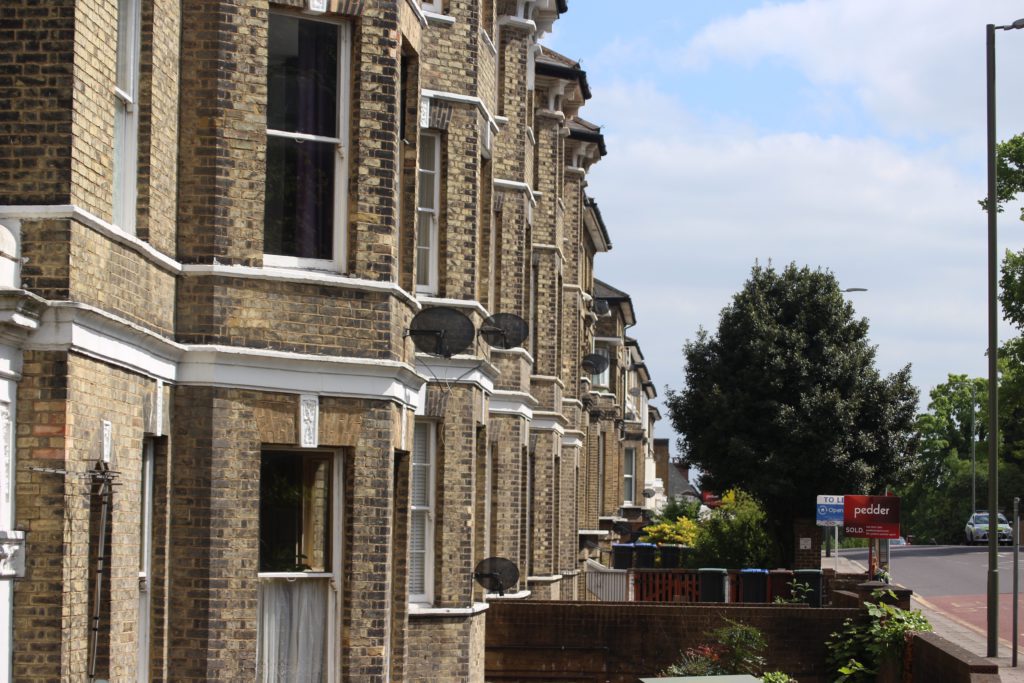A new report on London’s housing problems provoked a sharp rebuke from shadow housing minister John Healey. On Twitter he described Sir Mark Boleat, chairman of the government supported Housing And Finance Institute, as “out of order” for an “attack on affordable housing”, as he put it.
Healey was reacting not to Sir Mark’s report directly, but to coverage of it elsewhere, which said it contained a recommendation to allow private developers to build lower quantities of affordable housing. Let’s probe the tiff a little more.
Neither Sir Mark nor Healey are idiots. Far from it. Sir Mark has enormous experience in several areas of housing and was, until recently, the City of London Corporation’s equivalent of a borough political leader (take note that the City is a significant provider of homes for social rent). Healey is widely considered the most able and committed housing lead Labour has had in recent times. But was what he said about Sir Mark correct and fair?
Sir Mark’s report, entitled The Housing Problem In London, addresses the supply shortage in general. He argues for some things that very few politicians dare go anywhere near, such as reviewing green belt policy (which scares the life out of them) and having planning decisions taken by “relatively small panels” of individuals well-trained in the issues while representatives of the area where a proposed development would take place are excluded from the process. In other words, he wants Nimby pressure on local politicians bypassed.
He also calls for recognition that London needs to build at higher densities and that building on brownfield sites alone won’t be enough. These are less controversial, but still make politicians nervous. An “evidence-based debate” is another thing Sir Mark thinks essential. He takes issue with much of what he calls “the conventional wisdom”, including the populist assertion, squarely challenged by LSE academics’ recent report for Sadiq Khan, that overseas investors push up prices and lessen the provision of homes for ordinary Londoners.
None of these arguments are inconsistent with what we might call a “progressive” stance on housing, if by “progressive” we mean rationally addressing the reality that if you want more homes, including more for sale or rent that are within the price range of low to middle income Londoners, you need land to build them on, money to pay for them and political action that transcends parochialism for the greater good. Do not, however, expect Labour to be adopting any of them.
But does Sir Mark’s report amount to “an attack on affordable housing”, as Healey claimed? Its subtitle is “a broken planning system”. Sir Mark considers it too restrictive on housing developers and builders, resulting in too few homes being built, including affordable homes of all kinds.
One part of his argument is that the greater the requirement placed on a developer by a borough to provide social housing (and presumably other forms of affordable home), the fewer homes overall are likely to built and the fewer sub-market priced homes too. He wants it acknowledged that “the higher the tax on house building through planning obligations the fewer houses will be built”, and that “the truism remains – that 30% of a large number is likely to be higher than 50% of a small number”. He also wants the negotiation process for agreeing those obligations simplified and shortened, because it wastes time and money on all sides.
While stressing that there is a range of views and “no ‘right answer'” to this fraught problem, he argues that “one option would be a short-term fix of a single percentage (say 30%) being automatically accepted”. In support of this, he cites a conclusion of the exhaustive London Housing Commission report, published last year, which recommended that “the GLA should consult on an affordable housing tariff in order to simplify the process…and speed up the agreement of planning applications”.
Does this sound familiar? It will to anyone who has looked carefully at Mayor Khan’s important supplementary planning guidance (SPG) on affordable housing and viability, published in August – guidance we can expect to see enshrined in the draft of his revised London Plan when it is published in a few weeks’ time and which may already be having beneficial effects.
The SPG sets out a “threshold approach to viability”, which means that if private developers commit to a 35% “genuinely affordable” proportion of homes in new schemes without seeking public subsidy, the Mayor will not use his powers to stand in their way. This simplification is also intended to provide the certainty developers like and have the effect of lowering the price they have to pay for land – a very large and price-inflating component of the overall cost of getting housing built.
True, Sir Mark floats 30% as a figure to be “automatically accepted”, rather than 35%. But his prescription looks to me to be very similar indeed to the Mayor’s. Does John Healey think his party colleague “out of order” too?
Of course, most of us have been known to rush to judgements on the strength of too little information. Also, Healey would not be alone if he wonders if Sir Mark takes too benign a view of developers’ alleged “land banking” and slowing of construction speeds in order to maintain prices at levels consistent with making a profit they find acceptable.
But if a bold, practical and anti-populist assessment of London’s housing supply and affordability problems and how best to address them is required, Sir Mark’s report has plenty to recommend it. Is any politician out there “progressive” enough to embrace it?
Read Sir Mark Boleat’s report for the Housing and Finance Institute via here.

